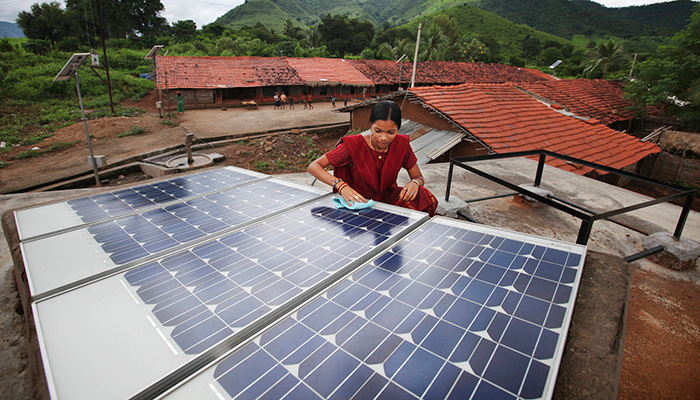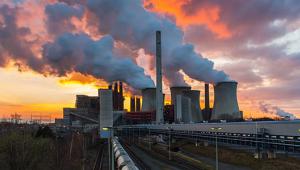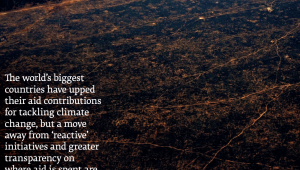CPI reviewed its estimates of climate finance for 2013 and 2014, using methods that improve collection and accuracy.
As well as identifying an additional $12bn in climate finance, the report confirmed that most governments invest their funds for climate change domestically. More than 70% of all climate finance raised over the two years, privately and publicly, was invested in the same country.
For developing countries, which suffer the worst impacts of climate change, this is to be expected. An annual average of $136bn in private and public finance was invested at home in such nations.
Similarly, an annual average of $135bn from the developed world was spent by the same country in which it was raised.
Climate justice advocates argue that, due to their historic responsibility for global emissions, advanced economies should financially support the developing world in mitigating and adapting to the effects of climate change.
This principle is at the heart of a commitment, reaffirmed at the landmark climate conference held in Paris last December, for advanced economies to channel at least $100bn every year to their developing counterparts by 2020.
According to the report, developed nations may not even have reached half of that target, which was first set in 2007.
By the most optimistic estimates, a total of $64bn flowed from the advanced to developing economies in 2014. It puts the lowest possible figure at $46.4bn.
This is, however, increasing, the report said. It highlighted that international finance grew by 14% on average between 2012 and 2014.
It also identified a 23% increase in adaptation finance – funds used to help developing nations adapt to the effects of climate change – during that period.
Money for adaptation measures has typically fallen behind that for mitigation measures, which work to prevent climate change in the first place.
Other findings include increases in both public and private finance flows, much of which (70%) went towards renewable energy (a mitigation measure), and that developing countries overtook advanced nations in terms of holding the greatest share of climate-related investment in 2014.
Barbara Buchner, executive director of climate finance at the CPI, applauded the fact that more money than ever was spent on climate finance in 2014.
However she noted: “To move towards a below 2°C [of global warming] pathway, investments need to scale up significantly.
“By strengthening policy frameworks, and identifying and fast tracking financial instruments, governments and their partners can attract increased investment.”














